UWL Report on Academic Integrity and Professionalism in Business
VerifiedAdded on 2021/05/25
|7
|1547
|66
Report
AI Summary
This report defines academic plagiarism and integrity, highlighting their interconnectedness and relevance to professionalism in the business environment. It emphasizes that academic plagiarism diminishes organizational integrity, affecting reputation and potentially leading to legal issues. The report explores the importance of academic integrity in business planning, building trust, enhancing leadership, and gaining a competitive edge. It identifies key dimensions of academic integrity, including trust, consistency, ownership, cooperation, and evaluation. The conclusion stresses the need for businesses to eliminate academic plagiarism to foster trust, goodwill, and effective leadership. Desklib provides access to this and other solved assignments to aid students in their studies.
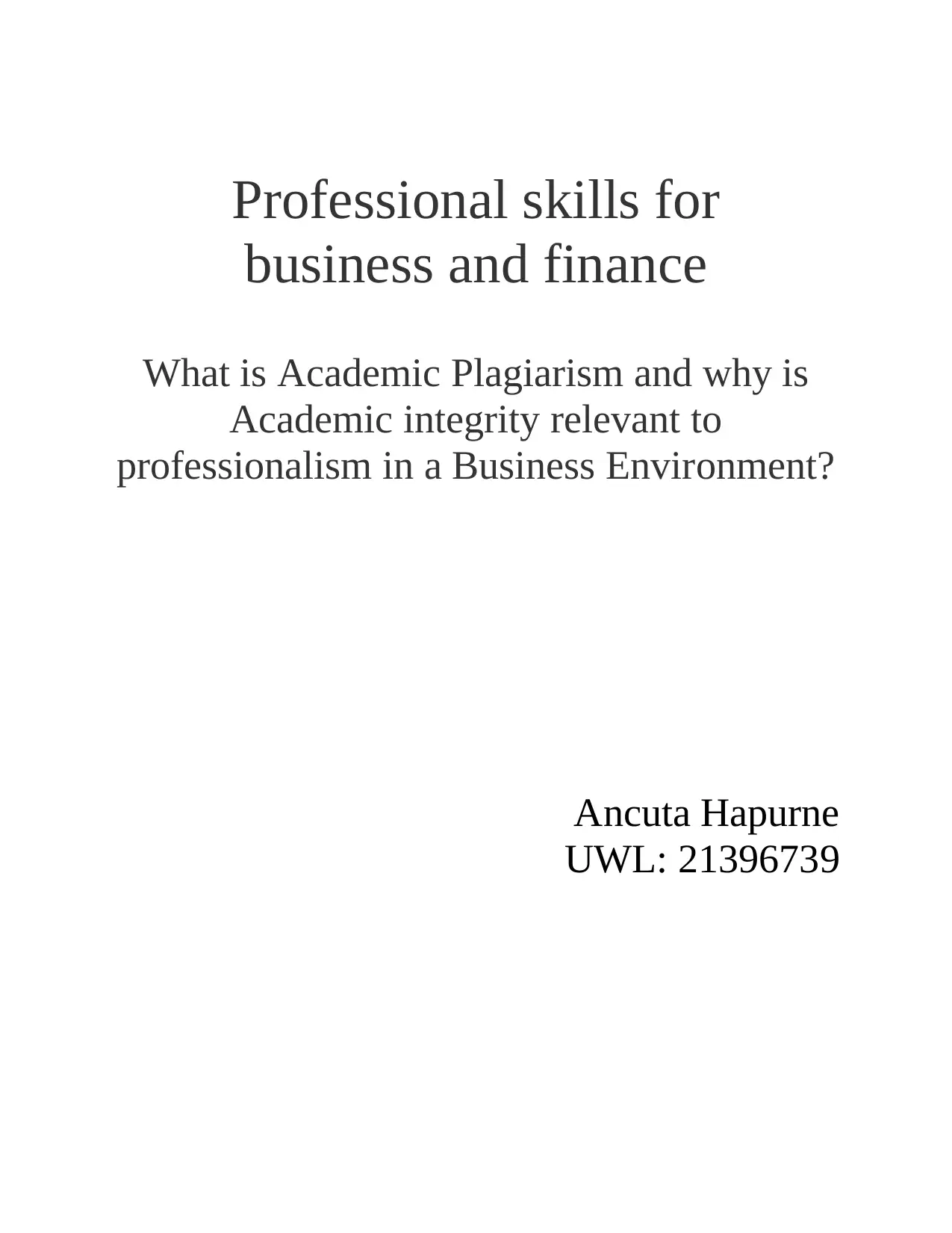
Professional skills for
business and finance
What is Academic Plagiarism and why is
Academic integrity relevant to
professionalism in a Business Environment?
Ancuta Hapurne
UWL: 21396739
business and finance
What is Academic Plagiarism and why is
Academic integrity relevant to
professionalism in a Business Environment?
Ancuta Hapurne
UWL: 21396739
Paraphrase This Document
Need a fresh take? Get an instant paraphrase of this document with our AI Paraphraser
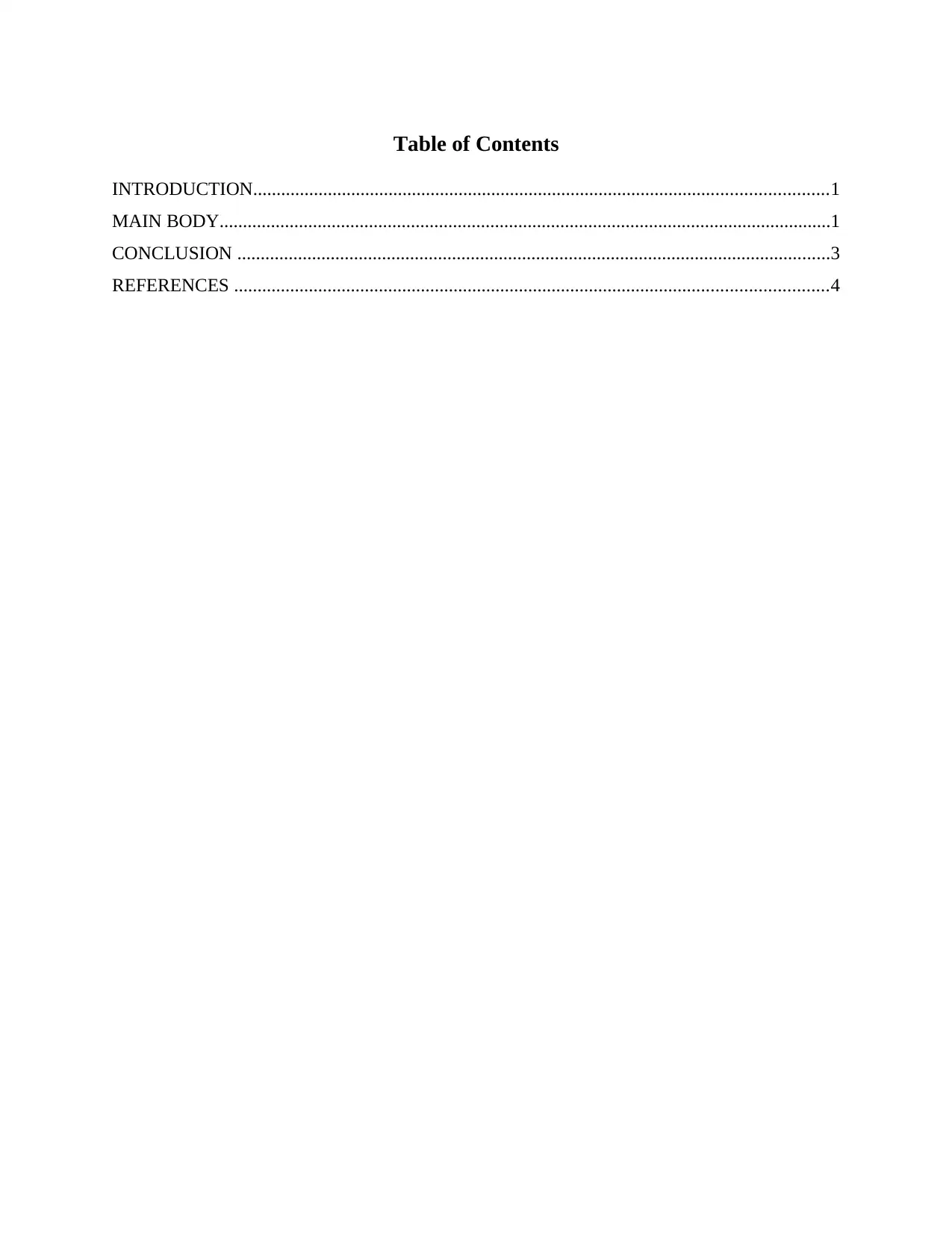
Table of Contents
INTRODUCTION...........................................................................................................................1
MAIN BODY...................................................................................................................................1
CONCLUSION ...............................................................................................................................3
REFERENCES ...............................................................................................................................4
INTRODUCTION...........................................................................................................................1
MAIN BODY...................................................................................................................................1
CONCLUSION ...............................................................................................................................3
REFERENCES ...............................................................................................................................4
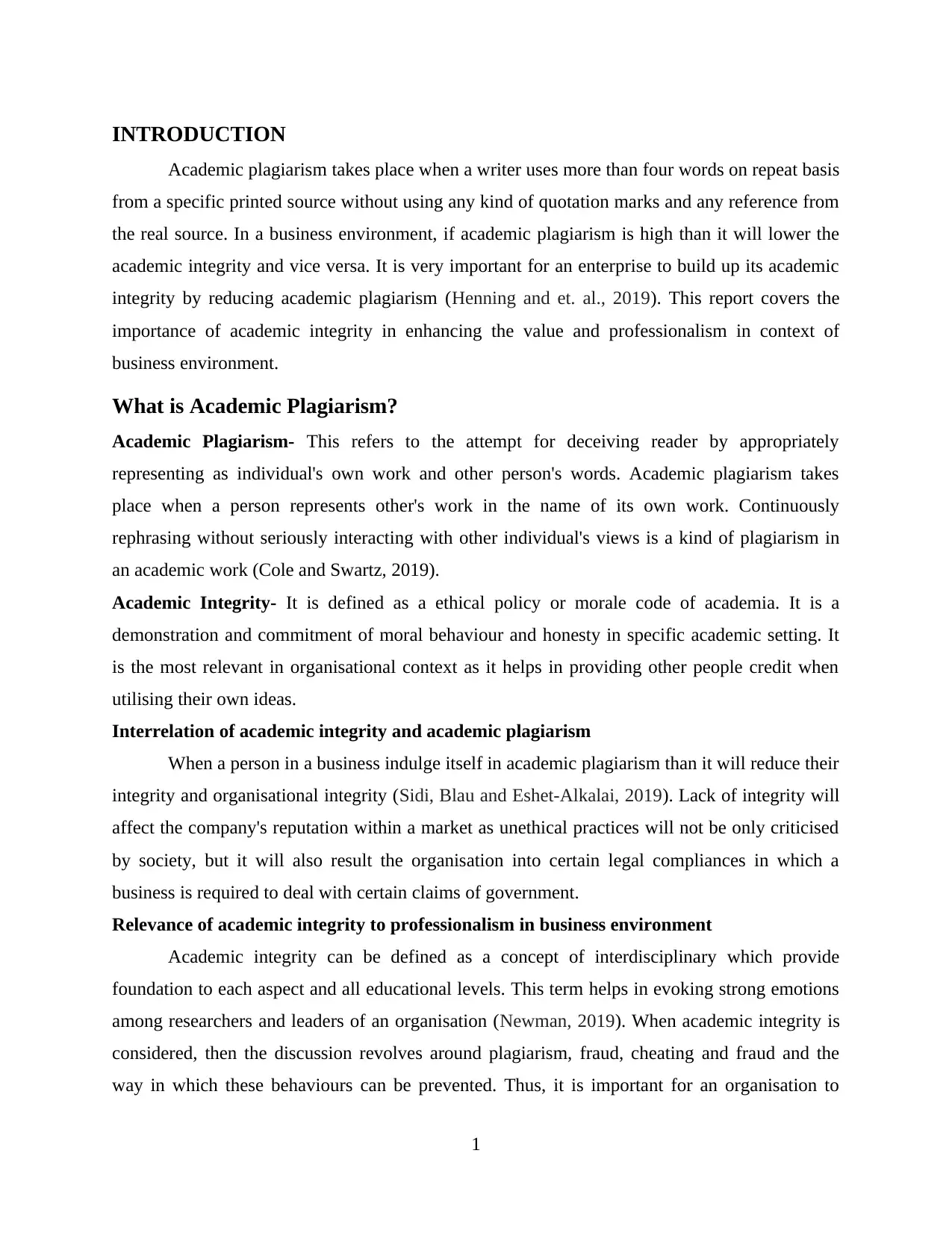
INTRODUCTION
Academic plagiarism takes place when a writer uses more than four words on repeat basis
from a specific printed source without using any kind of quotation marks and any reference from
the real source. In a business environment, if academic plagiarism is high than it will lower the
academic integrity and vice versa. It is very important for an enterprise to build up its academic
integrity by reducing academic plagiarism (Henning and et. al., 2019). This report covers the
importance of academic integrity in enhancing the value and professionalism in context of
business environment.
What is Academic Plagiarism?
Academic Plagiarism- This refers to the attempt for deceiving reader by appropriately
representing as individual's own work and other person's words. Academic plagiarism takes
place when a person represents other's work in the name of its own work. Continuously
rephrasing without seriously interacting with other individual's views is a kind of plagiarism in
an academic work (Cole and Swartz, 2019).
Academic Integrity- It is defined as a ethical policy or morale code of academia. It is a
demonstration and commitment of moral behaviour and honesty in specific academic setting. It
is the most relevant in organisational context as it helps in providing other people credit when
utilising their own ideas.
Interrelation of academic integrity and academic plagiarism
When a person in a business indulge itself in academic plagiarism than it will reduce their
integrity and organisational integrity (Sidi, Blau and Eshet‐Alkalai, 2019). Lack of integrity will
affect the company's reputation within a market as unethical practices will not be only criticised
by society, but it will also result the organisation into certain legal compliances in which a
business is required to deal with certain claims of government.
Relevance of academic integrity to professionalism in business environment
Academic integrity can be defined as a concept of interdisciplinary which provide
foundation to each aspect and all educational levels. This term helps in evoking strong emotions
among researchers and leaders of an organisation (Newman, 2019). When academic integrity is
considered, then the discussion revolves around plagiarism, fraud, cheating and fraud and the
way in which these behaviours can be prevented. Thus, it is important for an organisation to
1
Academic plagiarism takes place when a writer uses more than four words on repeat basis
from a specific printed source without using any kind of quotation marks and any reference from
the real source. In a business environment, if academic plagiarism is high than it will lower the
academic integrity and vice versa. It is very important for an enterprise to build up its academic
integrity by reducing academic plagiarism (Henning and et. al., 2019). This report covers the
importance of academic integrity in enhancing the value and professionalism in context of
business environment.
What is Academic Plagiarism?
Academic Plagiarism- This refers to the attempt for deceiving reader by appropriately
representing as individual's own work and other person's words. Academic plagiarism takes
place when a person represents other's work in the name of its own work. Continuously
rephrasing without seriously interacting with other individual's views is a kind of plagiarism in
an academic work (Cole and Swartz, 2019).
Academic Integrity- It is defined as a ethical policy or morale code of academia. It is a
demonstration and commitment of moral behaviour and honesty in specific academic setting. It
is the most relevant in organisational context as it helps in providing other people credit when
utilising their own ideas.
Interrelation of academic integrity and academic plagiarism
When a person in a business indulge itself in academic plagiarism than it will reduce their
integrity and organisational integrity (Sidi, Blau and Eshet‐Alkalai, 2019). Lack of integrity will
affect the company's reputation within a market as unethical practices will not be only criticised
by society, but it will also result the organisation into certain legal compliances in which a
business is required to deal with certain claims of government.
Relevance of academic integrity to professionalism in business environment
Academic integrity can be defined as a concept of interdisciplinary which provide
foundation to each aspect and all educational levels. This term helps in evoking strong emotions
among researchers and leaders of an organisation (Newman, 2019). When academic integrity is
considered, then the discussion revolves around plagiarism, fraud, cheating and fraud and the
way in which these behaviours can be prevented. Thus, it is important for an organisation to
1
⊘ This is a preview!⊘
Do you want full access?
Subscribe today to unlock all pages.

Trusted by 1+ million students worldwide
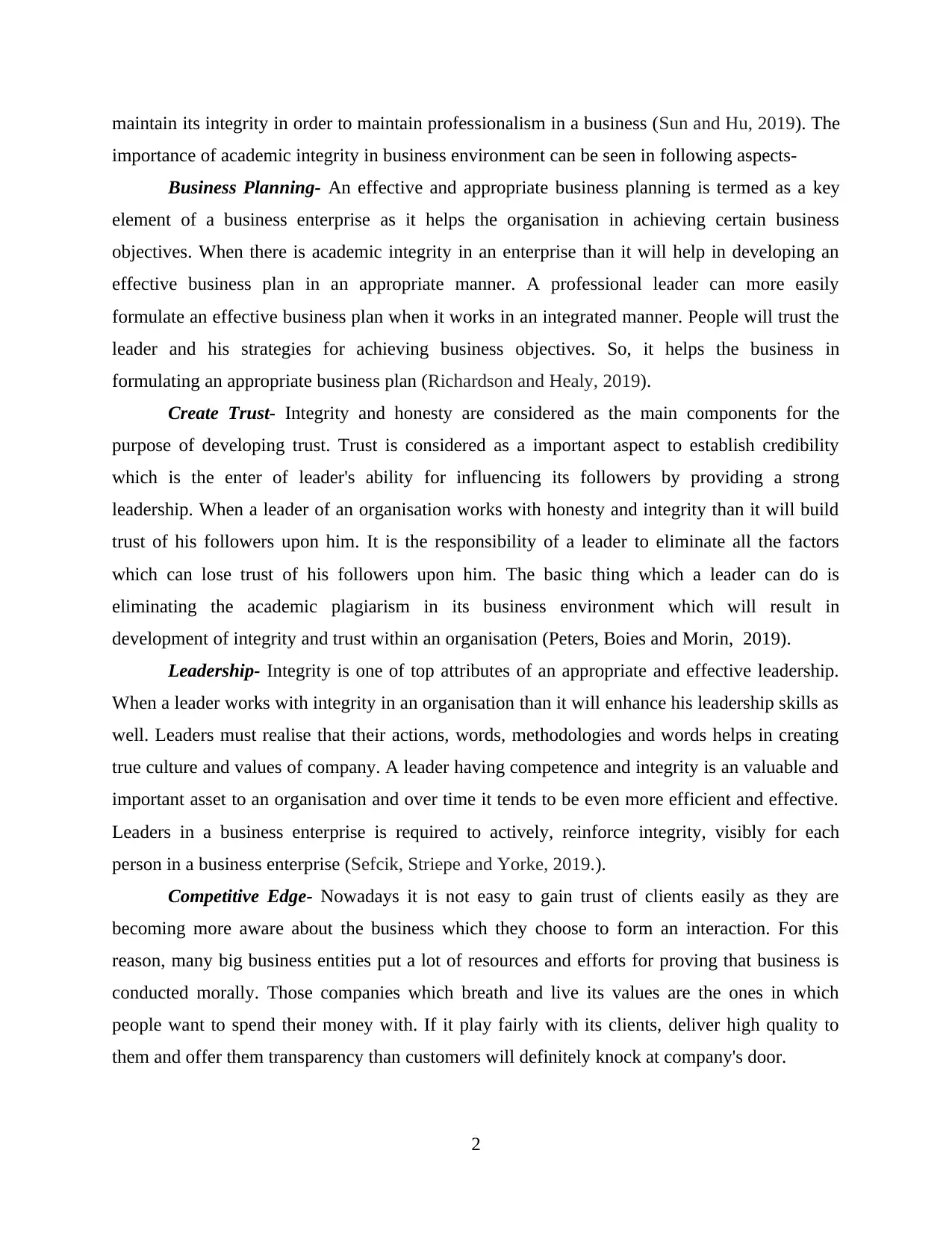
maintain its integrity in order to maintain professionalism in a business (Sun and Hu, 2019). The
importance of academic integrity in business environment can be seen in following aspects-
Business Planning- An effective and appropriate business planning is termed as a key
element of a business enterprise as it helps the organisation in achieving certain business
objectives. When there is academic integrity in an enterprise than it will help in developing an
effective business plan in an appropriate manner. A professional leader can more easily
formulate an effective business plan when it works in an integrated manner. People will trust the
leader and his strategies for achieving business objectives. So, it helps the business in
formulating an appropriate business plan (Richardson and Healy, 2019).
Create Trust- Integrity and honesty are considered as the main components for the
purpose of developing trust. Trust is considered as a important aspect to establish credibility
which is the enter of leader's ability for influencing its followers by providing a strong
leadership. When a leader of an organisation works with honesty and integrity than it will build
trust of his followers upon him. It is the responsibility of a leader to eliminate all the factors
which can lose trust of his followers upon him. The basic thing which a leader can do is
eliminating the academic plagiarism in its business environment which will result in
development of integrity and trust within an organisation (Peters, Boies and Morin, 2019).
Leadership- Integrity is one of top attributes of an appropriate and effective leadership.
When a leader works with integrity in an organisation than it will enhance his leadership skills as
well. Leaders must realise that their actions, words, methodologies and words helps in creating
true culture and values of company. A leader having competence and integrity is an valuable and
important asset to an organisation and over time it tends to be even more efficient and effective.
Leaders in a business enterprise is required to actively, reinforce integrity, visibly for each
person in a business enterprise (Sefcik, Striepe and Yorke, 2019.).
Competitive Edge- Nowadays it is not easy to gain trust of clients easily as they are
becoming more aware about the business which they choose to form an interaction. For this
reason, many big business entities put a lot of resources and efforts for proving that business is
conducted morally. Those companies which breath and live its values are the ones in which
people want to spend their money with. If it play fairly with its clients, deliver high quality to
them and offer them transparency than customers will definitely knock at company's door.
2
importance of academic integrity in business environment can be seen in following aspects-
Business Planning- An effective and appropriate business planning is termed as a key
element of a business enterprise as it helps the organisation in achieving certain business
objectives. When there is academic integrity in an enterprise than it will help in developing an
effective business plan in an appropriate manner. A professional leader can more easily
formulate an effective business plan when it works in an integrated manner. People will trust the
leader and his strategies for achieving business objectives. So, it helps the business in
formulating an appropriate business plan (Richardson and Healy, 2019).
Create Trust- Integrity and honesty are considered as the main components for the
purpose of developing trust. Trust is considered as a important aspect to establish credibility
which is the enter of leader's ability for influencing its followers by providing a strong
leadership. When a leader of an organisation works with honesty and integrity than it will build
trust of his followers upon him. It is the responsibility of a leader to eliminate all the factors
which can lose trust of his followers upon him. The basic thing which a leader can do is
eliminating the academic plagiarism in its business environment which will result in
development of integrity and trust within an organisation (Peters, Boies and Morin, 2019).
Leadership- Integrity is one of top attributes of an appropriate and effective leadership.
When a leader works with integrity in an organisation than it will enhance his leadership skills as
well. Leaders must realise that their actions, words, methodologies and words helps in creating
true culture and values of company. A leader having competence and integrity is an valuable and
important asset to an organisation and over time it tends to be even more efficient and effective.
Leaders in a business enterprise is required to actively, reinforce integrity, visibly for each
person in a business enterprise (Sefcik, Striepe and Yorke, 2019.).
Competitive Edge- Nowadays it is not easy to gain trust of clients easily as they are
becoming more aware about the business which they choose to form an interaction. For this
reason, many big business entities put a lot of resources and efforts for proving that business is
conducted morally. Those companies which breath and live its values are the ones in which
people want to spend their money with. If it play fairly with its clients, deliver high quality to
them and offer them transparency than customers will definitely knock at company's door.
2
Paraphrase This Document
Need a fresh take? Get an instant paraphrase of this document with our AI Paraphraser
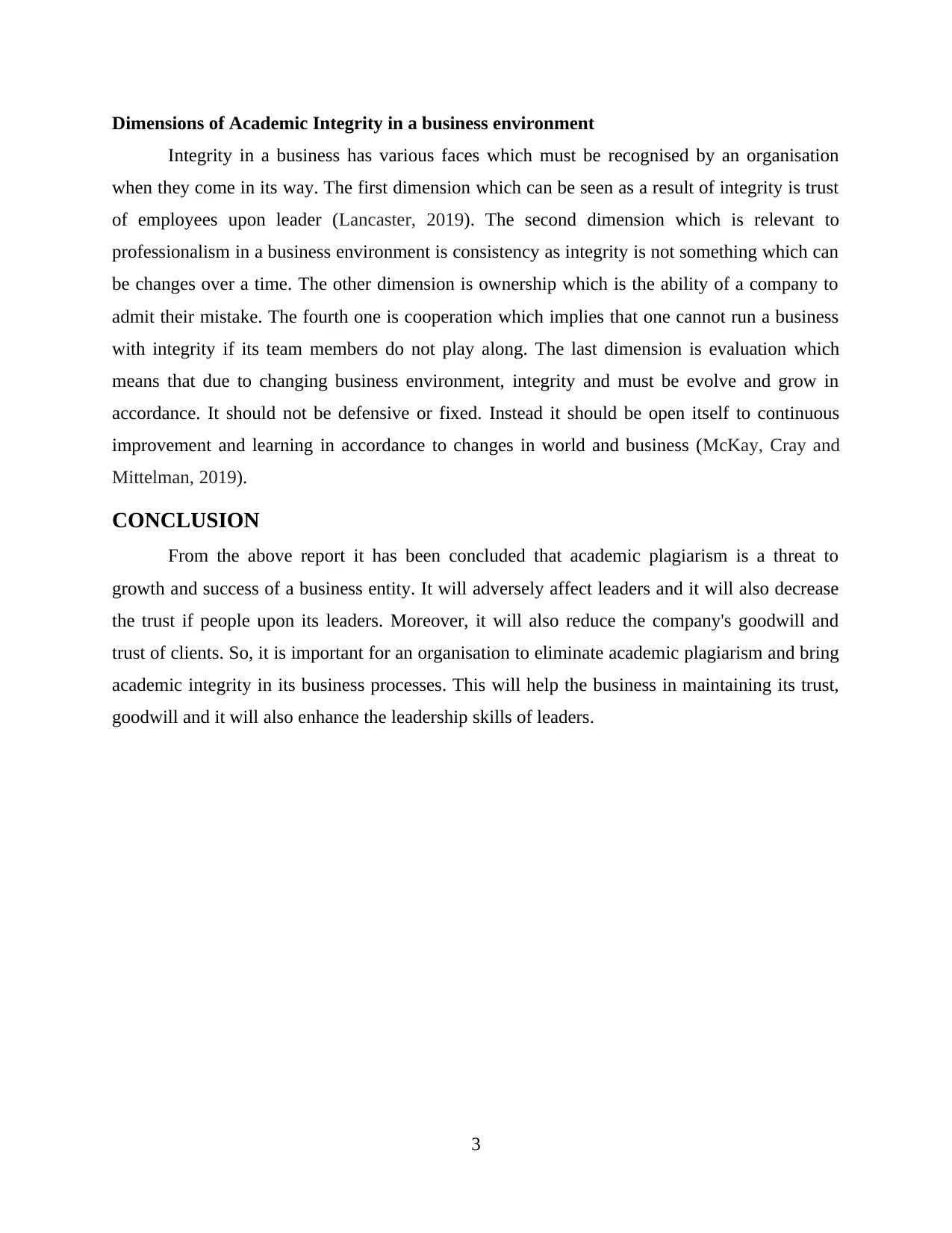
Dimensions of Academic Integrity in a business environment
Integrity in a business has various faces which must be recognised by an organisation
when they come in its way. The first dimension which can be seen as a result of integrity is trust
of employees upon leader (Lancaster, 2019). The second dimension which is relevant to
professionalism in a business environment is consistency as integrity is not something which can
be changes over a time. The other dimension is ownership which is the ability of a company to
admit their mistake. The fourth one is cooperation which implies that one cannot run a business
with integrity if its team members do not play along. The last dimension is evaluation which
means that due to changing business environment, integrity and must be evolve and grow in
accordance. It should not be defensive or fixed. Instead it should be open itself to continuous
improvement and learning in accordance to changes in world and business (McKay, Cray and
Mittelman, 2019).
CONCLUSION
From the above report it has been concluded that academic plagiarism is a threat to
growth and success of a business entity. It will adversely affect leaders and it will also decrease
the trust if people upon its leaders. Moreover, it will also reduce the company's goodwill and
trust of clients. So, it is important for an organisation to eliminate academic plagiarism and bring
academic integrity in its business processes. This will help the business in maintaining its trust,
goodwill and it will also enhance the leadership skills of leaders.
3
Integrity in a business has various faces which must be recognised by an organisation
when they come in its way. The first dimension which can be seen as a result of integrity is trust
of employees upon leader (Lancaster, 2019). The second dimension which is relevant to
professionalism in a business environment is consistency as integrity is not something which can
be changes over a time. The other dimension is ownership which is the ability of a company to
admit their mistake. The fourth one is cooperation which implies that one cannot run a business
with integrity if its team members do not play along. The last dimension is evaluation which
means that due to changing business environment, integrity and must be evolve and grow in
accordance. It should not be defensive or fixed. Instead it should be open itself to continuous
improvement and learning in accordance to changes in world and business (McKay, Cray and
Mittelman, 2019).
CONCLUSION
From the above report it has been concluded that academic plagiarism is a threat to
growth and success of a business entity. It will adversely affect leaders and it will also decrease
the trust if people upon its leaders. Moreover, it will also reduce the company's goodwill and
trust of clients. So, it is important for an organisation to eliminate academic plagiarism and bring
academic integrity in its business processes. This will help the business in maintaining its trust,
goodwill and it will also enhance the leadership skills of leaders.
3
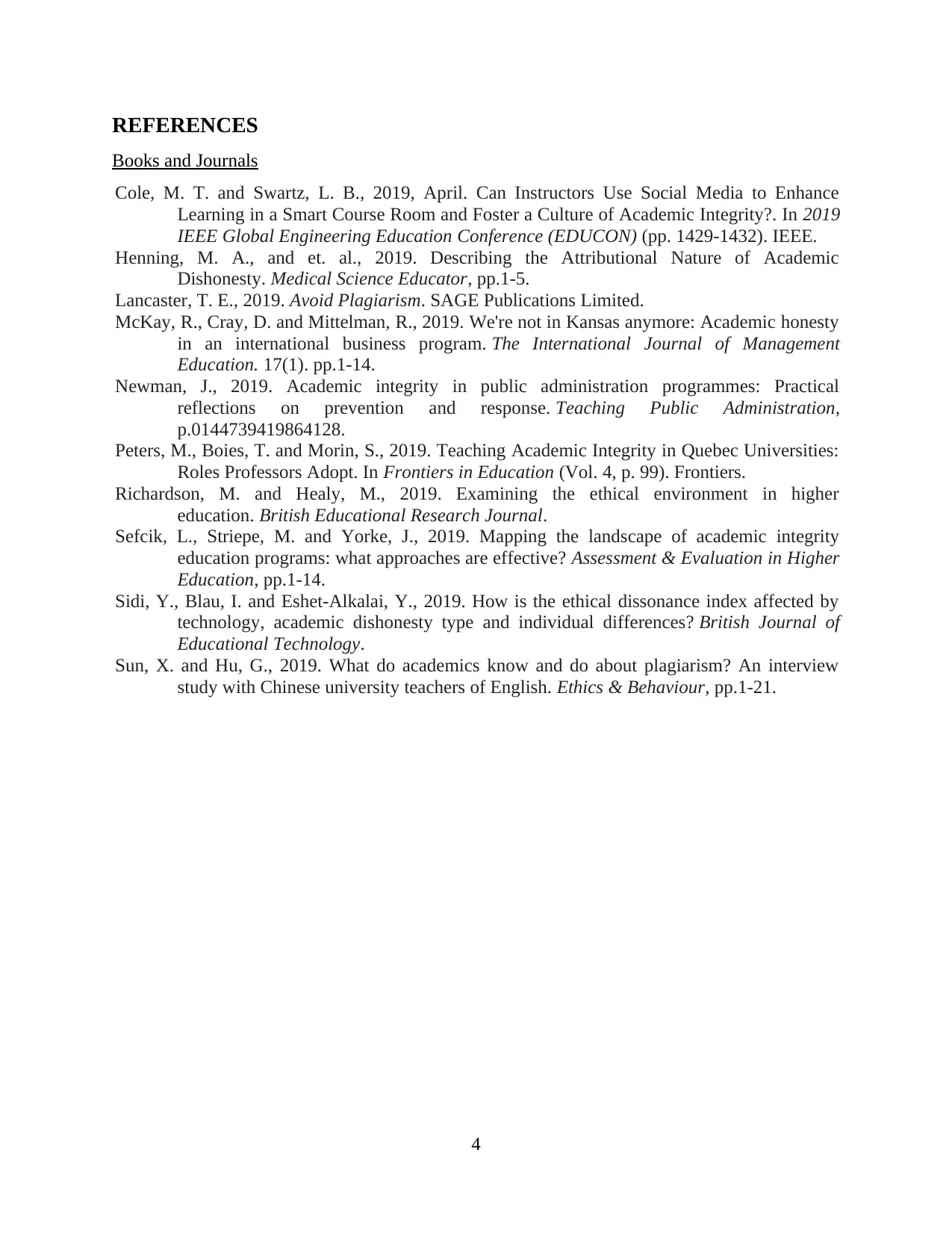
REFERENCES
Books and Journals
Cole, M. T. and Swartz, L. B., 2019, April. Can Instructors Use Social Media to Enhance
Learning in a Smart Course Room and Foster a Culture of Academic Integrity?. In 2019
IEEE Global Engineering Education Conference (EDUCON) (pp. 1429-1432). IEEE.
Henning, M. A., and et. al., 2019. Describing the Attributional Nature of Academic
Dishonesty. Medical Science Educator, pp.1-5.
Lancaster, T. E., 2019. Avoid Plagiarism. SAGE Publications Limited.
McKay, R., Cray, D. and Mittelman, R., 2019. We're not in Kansas anymore: Academic honesty
in an international business program. The International Journal of Management
Education. 17(1). pp.1-14.
Newman, J., 2019. Academic integrity in public administration programmes: Practical
reflections on prevention and response. Teaching Public Administration,
p.0144739419864128.
Peters, M., Boies, T. and Morin, S., 2019. Teaching Academic Integrity in Quebec Universities:
Roles Professors Adopt. In Frontiers in Education (Vol. 4, p. 99). Frontiers.
Richardson, M. and Healy, M., 2019. Examining the ethical environment in higher
education. British Educational Research Journal.
Sefcik, L., Striepe, M. and Yorke, J., 2019. Mapping the landscape of academic integrity
education programs: what approaches are effective? Assessment & Evaluation in Higher
Education, pp.1-14.
Sidi, Y., Blau, I. and Eshet‐Alkalai, Y., 2019. How is the ethical dissonance index affected by
technology, academic dishonesty type and individual differences? British Journal of
Educational Technology.
Sun, X. and Hu, G., 2019. What do academics know and do about plagiarism? An interview
study with Chinese university teachers of English. Ethics & Behaviour, pp.1-21.
4
Books and Journals
Cole, M. T. and Swartz, L. B., 2019, April. Can Instructors Use Social Media to Enhance
Learning in a Smart Course Room and Foster a Culture of Academic Integrity?. In 2019
IEEE Global Engineering Education Conference (EDUCON) (pp. 1429-1432). IEEE.
Henning, M. A., and et. al., 2019. Describing the Attributional Nature of Academic
Dishonesty. Medical Science Educator, pp.1-5.
Lancaster, T. E., 2019. Avoid Plagiarism. SAGE Publications Limited.
McKay, R., Cray, D. and Mittelman, R., 2019. We're not in Kansas anymore: Academic honesty
in an international business program. The International Journal of Management
Education. 17(1). pp.1-14.
Newman, J., 2019. Academic integrity in public administration programmes: Practical
reflections on prevention and response. Teaching Public Administration,
p.0144739419864128.
Peters, M., Boies, T. and Morin, S., 2019. Teaching Academic Integrity in Quebec Universities:
Roles Professors Adopt. In Frontiers in Education (Vol. 4, p. 99). Frontiers.
Richardson, M. and Healy, M., 2019. Examining the ethical environment in higher
education. British Educational Research Journal.
Sefcik, L., Striepe, M. and Yorke, J., 2019. Mapping the landscape of academic integrity
education programs: what approaches are effective? Assessment & Evaluation in Higher
Education, pp.1-14.
Sidi, Y., Blau, I. and Eshet‐Alkalai, Y., 2019. How is the ethical dissonance index affected by
technology, academic dishonesty type and individual differences? British Journal of
Educational Technology.
Sun, X. and Hu, G., 2019. What do academics know and do about plagiarism? An interview
study with Chinese university teachers of English. Ethics & Behaviour, pp.1-21.
4
⊘ This is a preview!⊘
Do you want full access?
Subscribe today to unlock all pages.

Trusted by 1+ million students worldwide
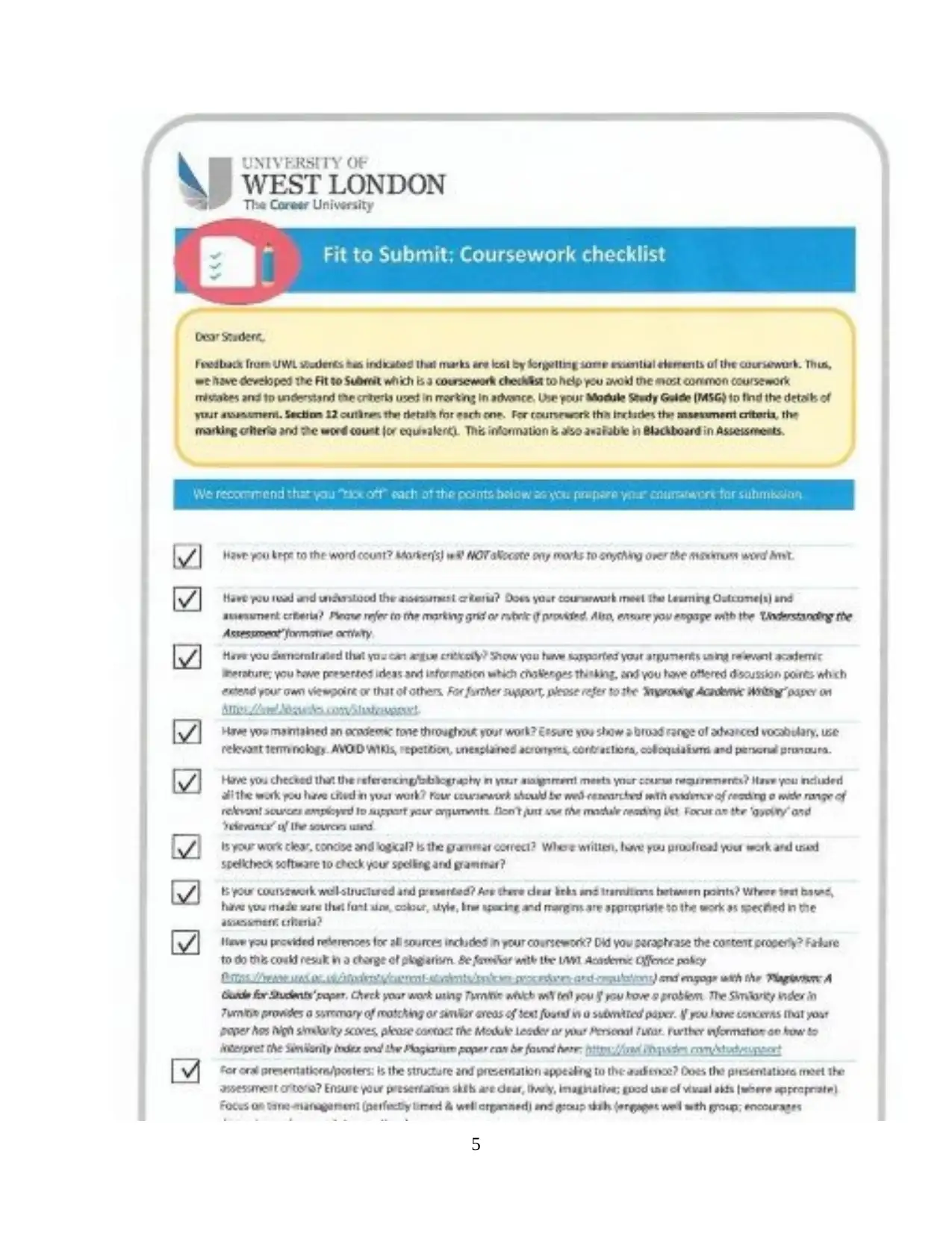
5
1 out of 7
Related Documents
Your All-in-One AI-Powered Toolkit for Academic Success.
+13062052269
info@desklib.com
Available 24*7 on WhatsApp / Email
![[object Object]](/_next/static/media/star-bottom.7253800d.svg)
Unlock your academic potential
Copyright © 2020–2026 A2Z Services. All Rights Reserved. Developed and managed by ZUCOL.




